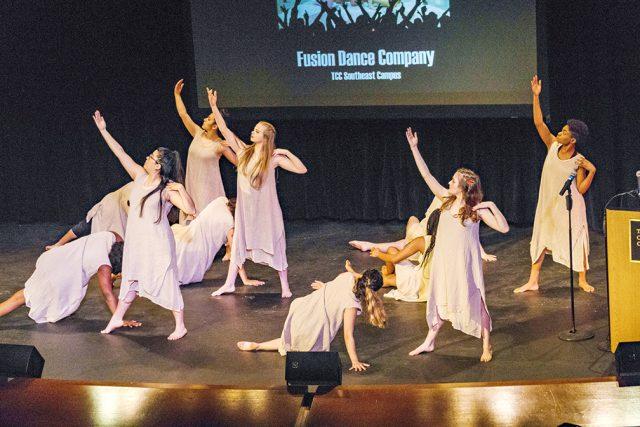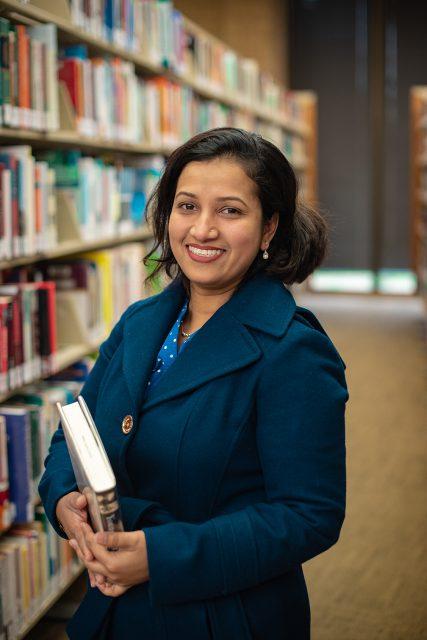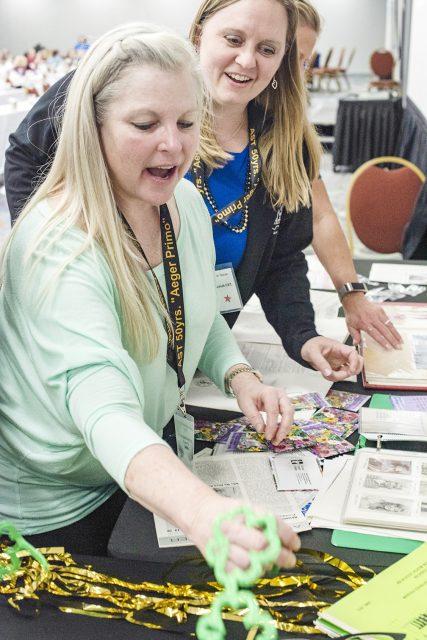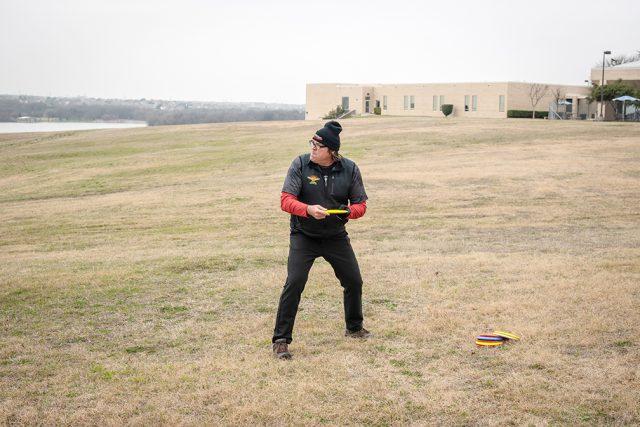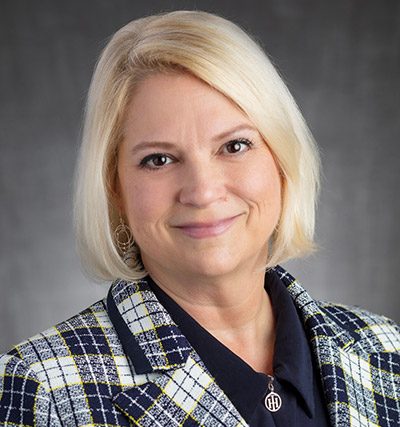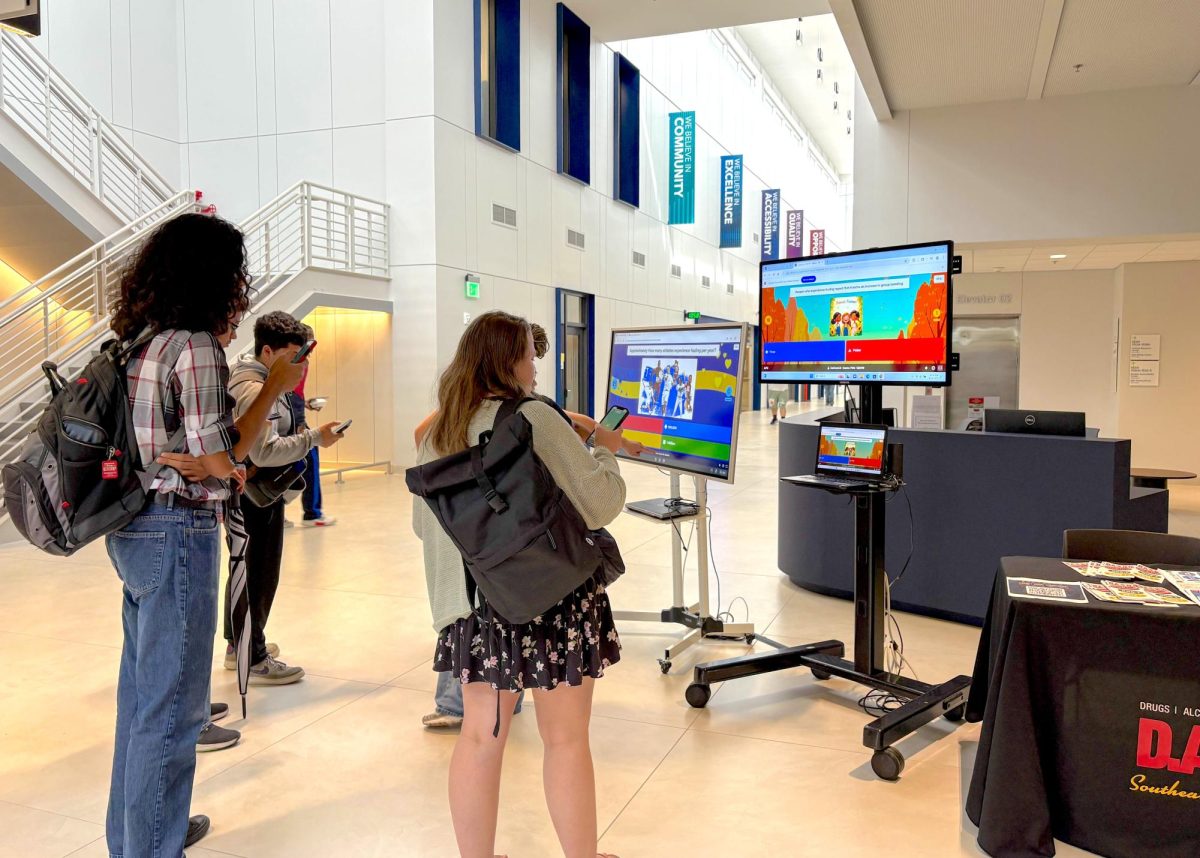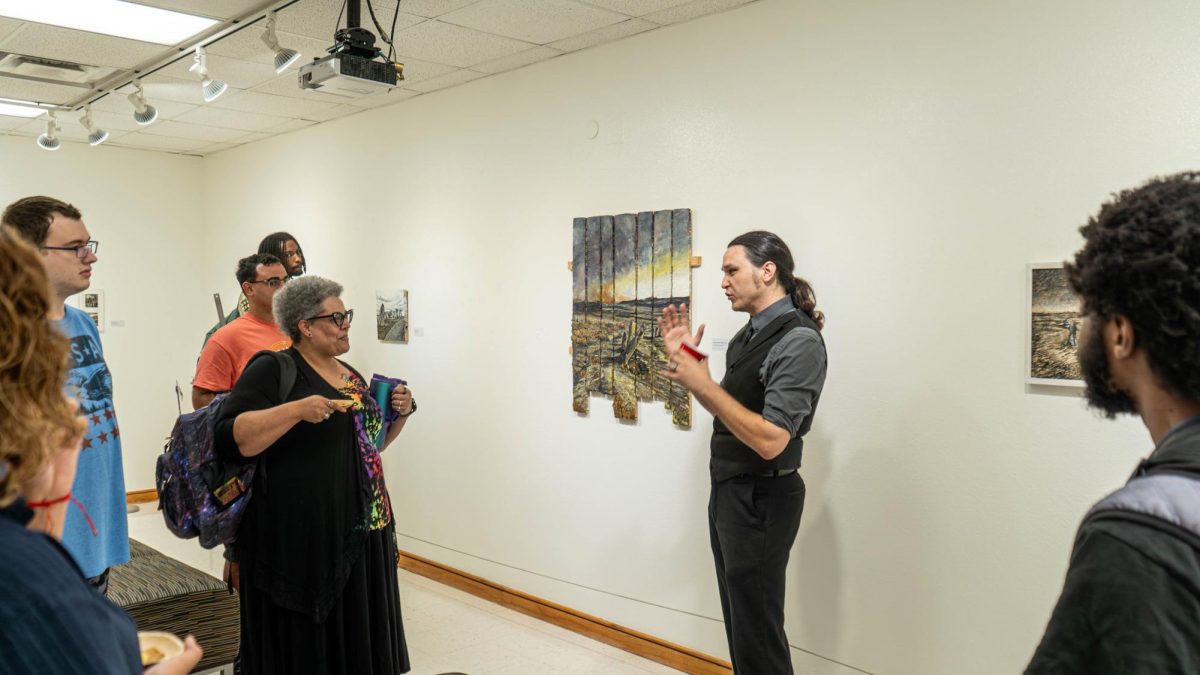By Krissia Palomo/reporter
Acts performed to highlight cultural achievements
Cultural appreciation was the message of the African-American Read-In Feb. 25 on SE Campus.
African-American Read-Ins are a nationwide event across many college campuses. The event focuses on the importance of literature in African-American culture. This year’s theme was “Black Migrations.”
Participants of the Read-In showcased their talents in front of a full theater. SE student Jasmine Shands performed an excerpt from the 1959 play A Raisin In The Sun.
Lorraine Hansberry wrote the play and became the first black woman to have a play on Broadway.
“I was inspired to participate in this event because I got so much joy from performing A Raisin In The Sun on campus,” Shands said. “[It] is such a great piece of black American literature.”
SE English instructor Dianne Suarez has been a long-time participant of read-ins. Before introducing Suarez, Zena Jackson, vice president of student affairs, told a story about the day after Aretha Franklin’s death. Jackson recalled Suarez emailing her saying they must pay tribute to the late singer during the Read-In.
Suarez approached the stage with energy, playing Franklin’s most popular songs and encouraging the crowd to clap to the beat.
“The study of African-American literature reveals what the study of all literature reveals,” she said. “People, no matter how diverse, are basically the same.”
For Suarez, the event shares her passion for literature and diversity as well as educates and entertains.
“We all experience feelings of great joy but also feelings of great pain,” she said. “In this regard, we are all members of the human race. We are all brothers and sisters.”
To close off the event, Tracey Minzenmayer, SE library services assistant director, thanked all participants and coordinators for making the event possible.
“The Read-In gives TCC an opportunity to come together as a community, to share talents and to learn more about authors and other artists whose works we may not have encountered yet,” she said.


























